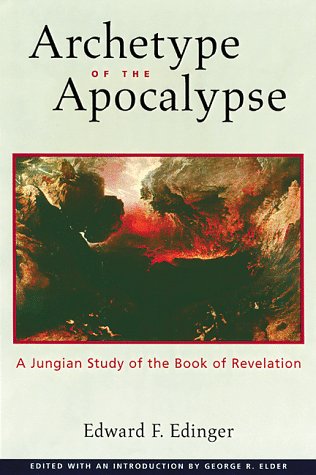Synopsis
According to Edward Edinger, we are in the midst of a monumental cultural change that will end the world as we know it. This is the result of the increasingly powerful force of our collective unconscious, the Apocalypse archetype. This archetype manifests itself through various signs: the drama of international relations, the breakdown of social structure, and the widening gap between political, ethnic, religious, and socioeconomic groups, in science fiction and New Age books, TV, and movies. The public's preoccupation with natural disasters and the rise of religious cults and survivalist sects are other indicators. In ten chapters Edinger analyzes the Book of Revelation from this Jungian perspective. Case histories include David Koresh and the Heaven's Gate cult.
Reviews
As a tool for textual criticism, Jungian analysis often reveals as much or more about Jungian analysis than about the text. Edinger's study of John's Apocalypse is no exception. Readers will learn a great deal about the Jungian concept of archetypes and their impact on individuation; they will learn less about the biblical book. Edinger was a founder of the C.G. Jung Institute of New York. This book grew out of a series of 10 lectures he delivered at the C.G. Jung Institute of Los Angeles, beginning in 1995. Though edited and revised for publication, they retain some of the fragmentary and episodic character of popular lectures. The book is divided into chapters that follow the sequence of John's narrative. Edinger brings the narrative into dialogue with dream images gleaned from his own experience as an analyst and from reports of other psychiatrists. Most interesting are Edinger's extensive commentary on Jung's Answer to Job and his brief discussion of two contemporary cases of "possession" by the "apocalypse archetype"ADavid Koresh and the leaders of Heaven's Gate. These illustrate the explosive power of what Edinger calls "the coming of the Self." For the alienated ego, the eruption of the Self from the unconscious is not only explosive but destructive. The alternative Edinger proposes, quoting Jung, is the "broadening out of man to the whole man," a far cry from the book of Revelation but an indication of the social dimension of Jungian individuation.
Copyright 1999 Reed Business Information, Inc.
Edinger, who died in 1998, was a Jungian analyst, author, and lecturer. His book will probably appeal more to Jungians than to New Testament exegetes, since Jungian analysis is not high on the list of methodologies used by New Testament scholars, if it makes the list at all. In a chapter-by-chapter explanation of the symbols in Revelation/Apocalypse in Jungian terms, Edinger argues that a significant cultural upheavalAread apocalypseAis coming, based on growing violence, belief in alien abduction, the spread of cults, and so on. The two appendixes make the interesting point that the strange behaviors of Waco's David Koresh and Heaven's Gate's Marshall Applewhite are adequately explained only by the archetype of the Apocalypse. This book is not light reading. Recommended as an alternative explanation of contemporary culture.AJohn Moryl, Yeshiva Univ. Lib., New York
Copyright 1999 Reed Business Information, Inc.
"About this title" may belong to another edition of this title.
